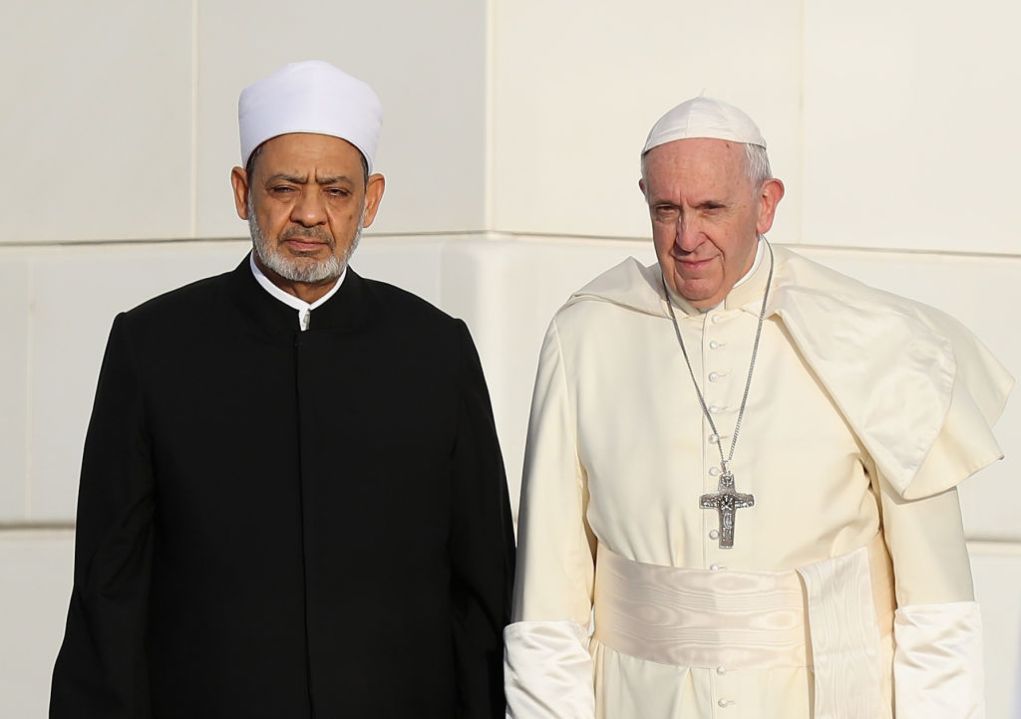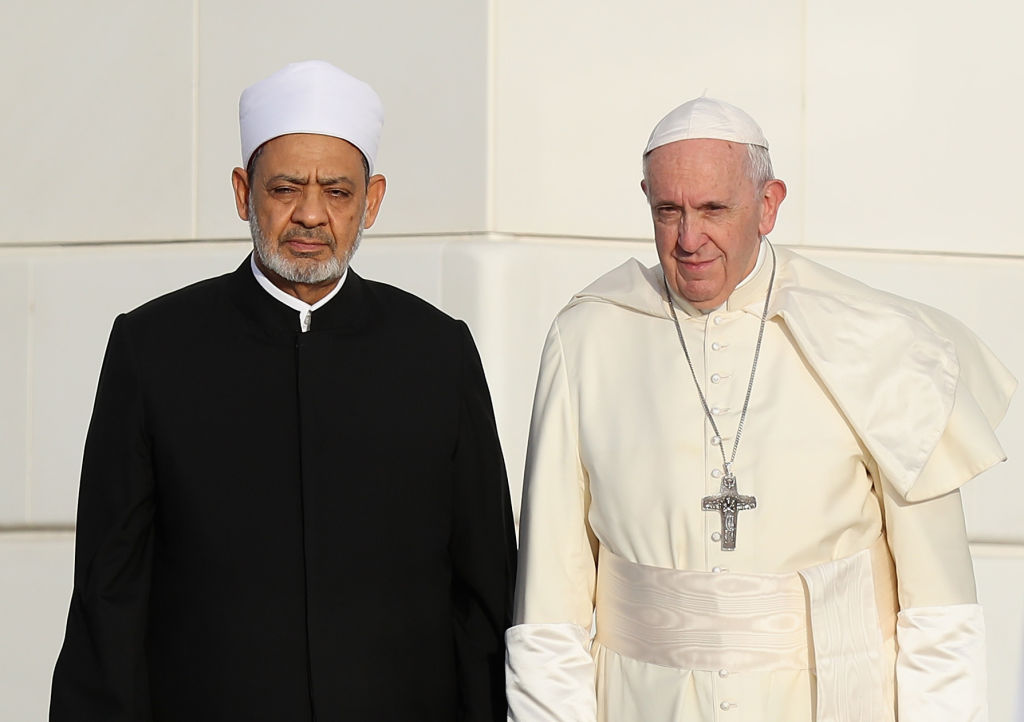Today, the Pope celebrated mass in Abu Dhabi and you do know what that means? It’s a mass in the Arabian peninsula, the birthplace of Islam. And for the first time in centuries – whenever the Nestorian church last had its rites there, maybe 1300 years ago, the gospel was said in Arabic there. It was a happy, celebratory affair (way more cheerful, I may say, than the Pope’s mass in Dublin) preceded last night by a more serious affair, the signing of a joint declaration on Human Fraternity by the Pope and the grand imam of al Azhar. It’s the culmination of the Year of Tolerance proclaimed here by the rulers of the United Arab Emirates. In the course of his remarks the Pope paid tribute to the freedoms of worship given here, which, I may say, was enthusiastically borne out by the congregation at the Catholic Cathedral of St Joseph on Sunday. During the mass, when the cardinal archbishop for the southern Arabian peninsula expressed his gratitude to Sheikh Mohammed, the Crown Prince, for enabling the mass to happen, the congregation spontaneously applauded. This is something laudable, a country in the birthplace of Islam, next door to Saudi Arabia, where Christians and other religious groups feel free, as Christians.
As one government minister told me, this doesn’t happen by chance. This is a country where tolerance is enforced: it’s taught in infant school – and the Friday sermons preached in mosques are written by a central committee to make sure they don’t go off message.
If you’re like me, the words diversity and tolerance will, as a rule, have you reaching for your revolver. In Britain and most Western countries it’s an occasion for platitudes in conference attended by the same people from assorted faith groups which has no bearing on anything. Here, the conference on Human Fraternity that accompanied the Pope’s visit, arranged by the Muslim Council of elders, there was a rather different take on the subject, because the place was stuffed with clerics from churches where diversity and tolerance are not the norm: Iraq and Syria and Egypt (though I should say that for the Syrians I met, they were emphatic that local Muslims were fine; it was the people who came from abroad to make mischief that caused the real problems (thank you, Europe) – I actually heard one Lebanese cleric declare scornfully that “these people are not Muslims”). They were hopeful that the symbolism of the Pope’s meeting with the grand imam might bear fruit later on, by making young men less likely to join the Islamist extremists. One bishop reflected that the friendships made on these occasions between Christians and Muslims did make for kindly feelings.
And there was indeed one really important development. In the grand imam’s address – delivered fortissimo – he addressed himself to the Christians of the east, declaring that “you should not call yourself a minority…you are not a minority; you are citizens like everyone else.” This is what the Christians of the Middle East have been telling anyone who will listen for years: that they are native to the region, and indeed were here first; what they want are civic rights and responsibilities like anyone else. And this was precisely what the spiritual leader of millions of Sunni Muslims said. And he comes from Egypt, where Christian Copts have been the object of lethal attacks by Islamists for at least the last ten years. Words matter. Language matters. And for the first time, I thought to myself here that actually the words tolerance and fraternity do mean something.








Comments